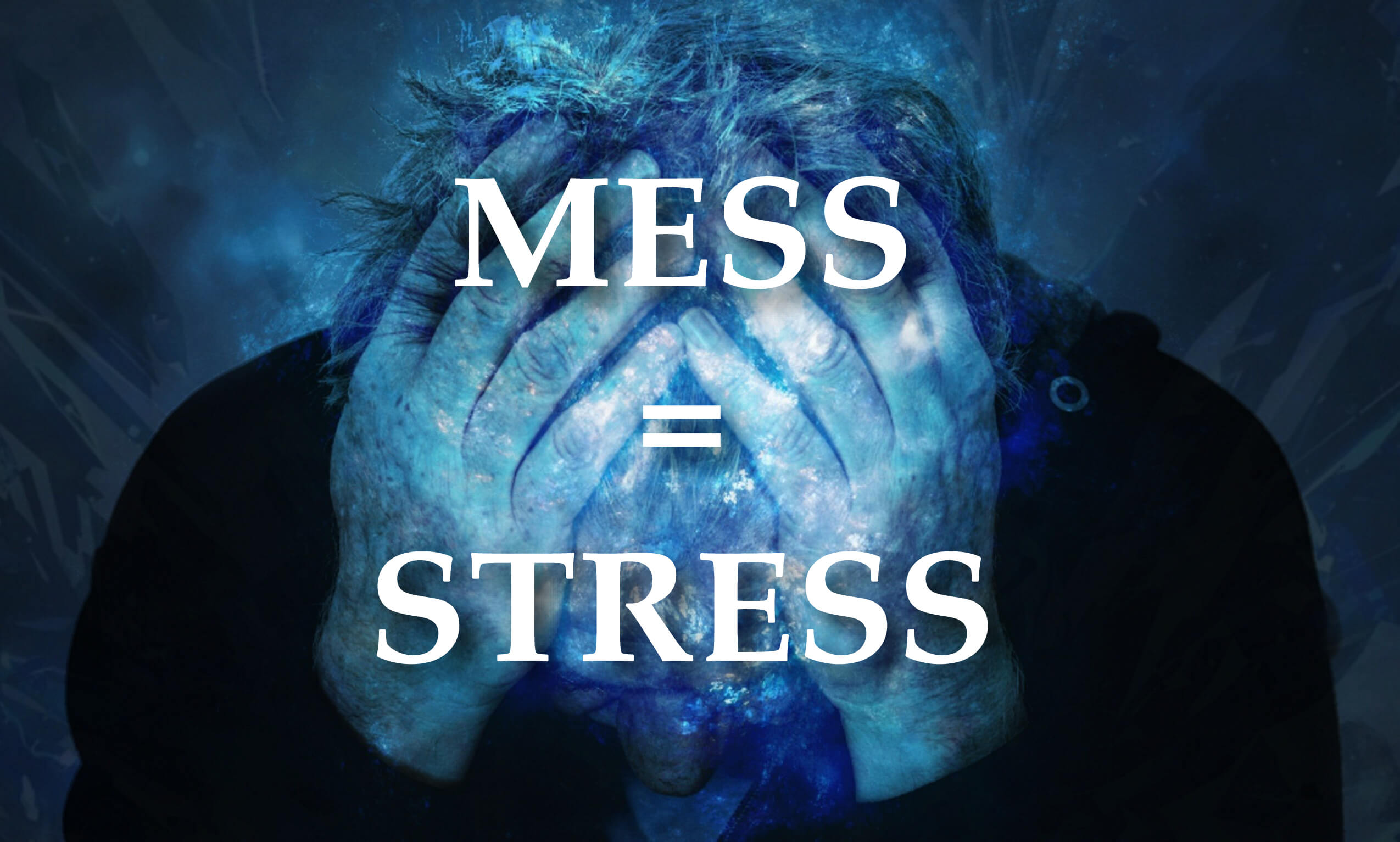Most office workers know how it feels to have a stressful day and have so much work that it bombards their cubicle. There can be so much chaos in one day that we can only wonder how so many items end up spread out everywhere across the desk. Along with the work, agitation increases very quickly. Why does a mess create more stress?

Sherrie Bourg Carter Psy.D. gives us a great list about the effects of clutter on the mind.
- Clutter bombards our minds with excessive stimuli (visual, olfactory, tactile), causing our senses to work overtime on stimuli that aren’t necessary or important.
- Clutter distracts us by drawing our attention away from what our focus should be on.
- Clutter makes it more difficult to relax, both physically and mentally.
- Clutter constantly signals to our brains that our work is never done.
- Clutter makes us anxious because we’re never sure what it’s going to take to get through to the bottom of the pile.
- Clutter creates feelings of guilt (“I should be more organized”) and embarrassment, especially when others unexpectedly drop by our homes or work spaces.
- Clutter inhibits creativity and productivity by invading the open spaces that allow most people to think, brain storm, and problem solve.
- Clutter frustrates us by preventing us from locating what we need quickly (e.g. files and paperwork lost in the “pile” or keys swallowed up by the clutter).
If clutter is so bad, what can be changed to decrease clutter and increase productivity? The obvious first step: Organize.
If you have papers piled and scattered all over your desk, get a little file cabinet with some file folders. By sorting all the papers into categories, it will save time in the long run. Have you ever written and printed a paper for a meeting and then lost it in your mess of a desk? With a well-organized file cabinet, you can rest at ease knowing that all your important documents can be found in a few seconds.
Even if those important papers are all tucked away in a secure place, there are still going to be random papers that are not needed anymore or pens, paperclips, and highlighters scattered.
At the end of each day take some time to throw away the junk and put away the miscellaneous items. For items that still need to be sorted by the end of the day, have a desk organizer to put them in so they aren’t all over the desk the next morning. I guarantee you will leave feeling better, and decrease the stress while coming in the next day. It’s also great time to ponder what you learned that day, take notes, and declutter your mind while you declutter your office. Many people leave the office still thinking about what they didn’t finish or what they are going to have to do the next day. If you write it all down, you will be much less stressed after the work day is over.
Going along with writing things down, during the work day many different tasks can be thrown at you. They will be rattling around in your brain until you finish them.
If you don’t write these down on a note pad, sticky notes, or a white board then your brain will be too busy to fully concentrate on anything else. Create a task list every day, and any time an assignment is thrown at you, jot it down. Holding the tasks in your mind while trying to focus on something else is like a baseball player holding onto every ball he caught during practice while trying to eat during his lunch break. Just catch each of the balls as they come, put them in a little basket next to you, and take care of them when you have time.
Stress may always be a part of the everyday working lifestyle, but that doesn’t mean it can’t be decreased. Free your mind of the weight of worry by getting rid of any excess disorder.




